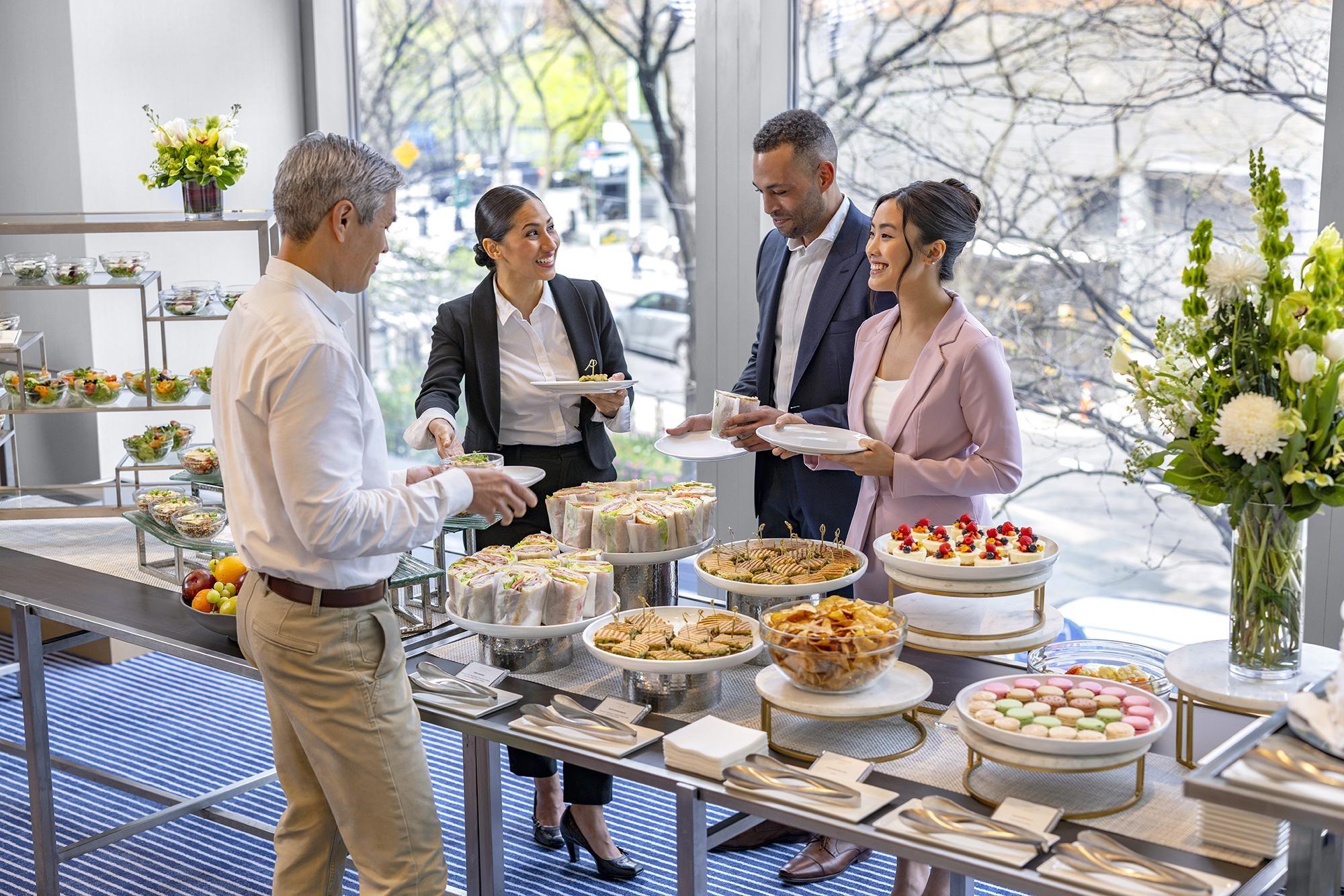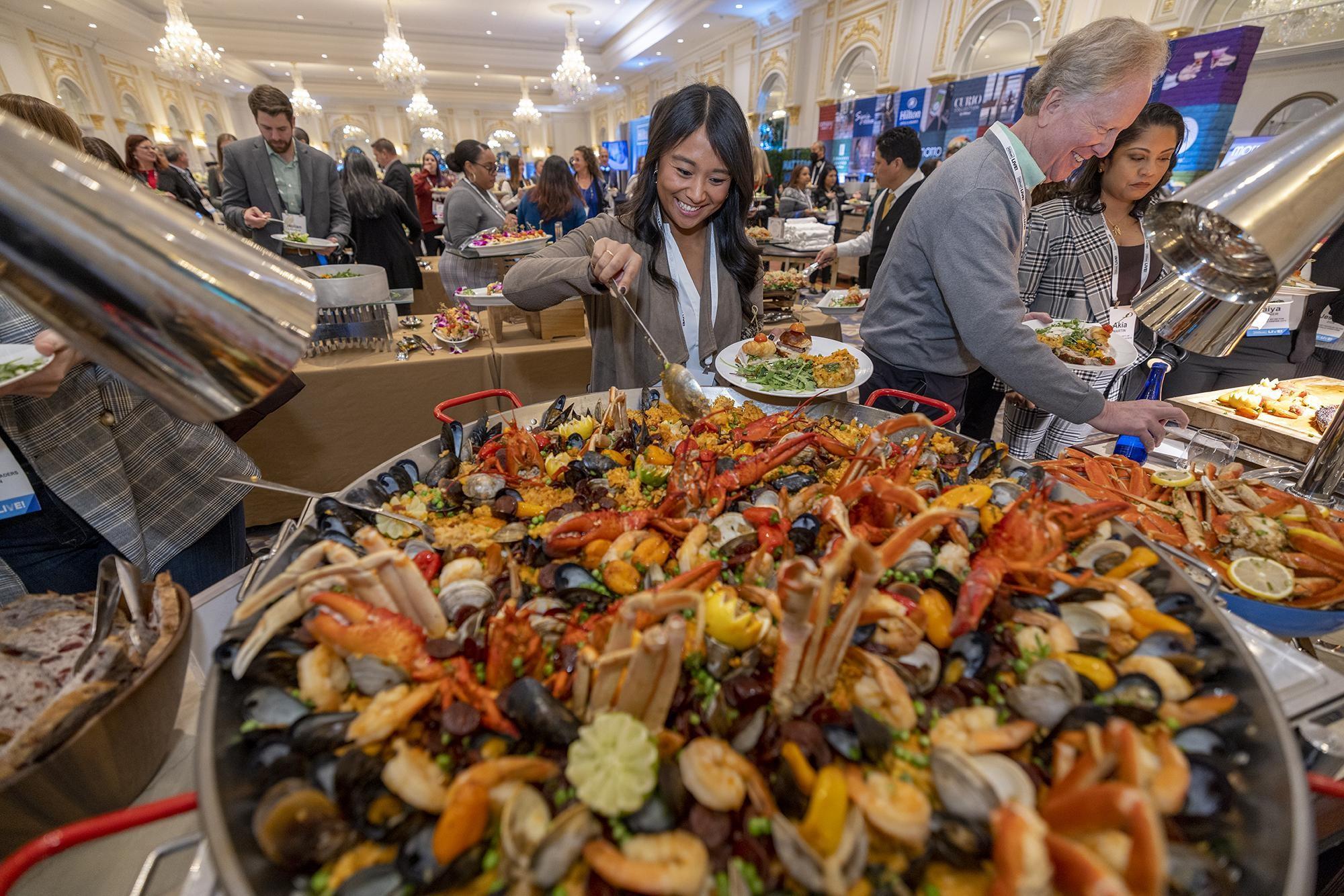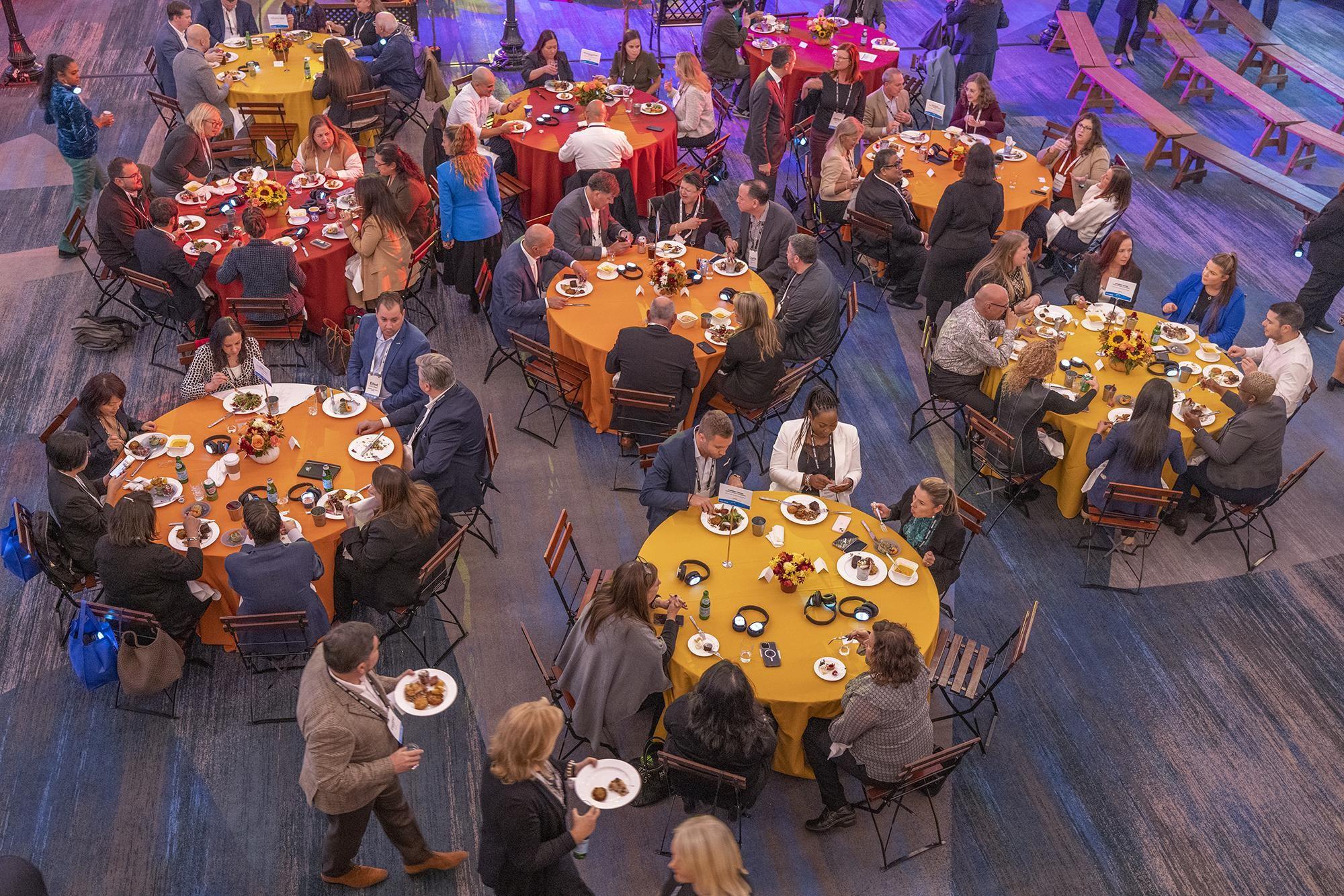Menus, manners & mealtime: Hilton tackles dining-induced anxiety

In the world of professional events, menus are more than just line items — they’re a defining part of the attendees’ experience. Yet, for many guests, mealtime can be a source of major anxiety. At Hilton, we’ve taken a deep dive into the emotional landscape of event dining, uncovering the subtle stressors that can impact comfort, confidence, and overall satisfaction.
The unspoken stress of group dinners
Our research1 reveals that food-related fears are surprisingly common among eventgoers. While food is meant to be fun and bring people together, it can also be a source of discomfort if not thoughtfully planned.
We polled over 1,000 event attendees, and they told us what puts their nerves on edge.
- 38% worry about spilling food or drink on their clothing (Not a good look … )
- 30% are concerned they won’t like the food being served (Let’s be conscious of dietary restrictions, please!)
- 28% fear getting food stuck in their teeth (Embarrassing.)
- 16% are self-conscious about their table manners (Elbows on the table? Is that still a thing?)
These statistics tell us that even the seemingly smallest details have a big impact on how comfortable attendees feel during meals.
What really impacts comfort
When it comes to creating a comfortable dining experience, a few key actions can really make the meal. The most impactful thing an event planner can do is send menus to attendees in advance. This simple gesture makes 60% of attendees feel more at ease. The preference is even stronger among younger generations, with 66% of Millennials and 59% of Gen Z saying it reduces their anxiety. Even among older generations, the impact is notable — 58% of Gen X and 52% of Baby Boomers appreciate having this information ahead of time.
Offering non-alcoholic drink options is another meaningful way to make everyone feel included, valued by 52% of attendees overall. This is especially important for Gen Z (54%) and Millennials (55%). Similarly, 52% of attendees say that having food options for people with allergies or dietary restrictions makes them feel more at ease. These factors often tie directly into how well dietary needs are anticipated and accommodated.

Dietary needs, preferences, and thoughtful planning
Special dietary needs, whether gluten-free, vegetarian, or even personal preferences, can deter eventgoers from fully enjoying their meals. Sometimes, it’s not about a restriction at all, but a preference for something simple, like a turkey sandwich and Caesar salad instead of sushi.
That’s why we strongly recommend sharing menus in advance. We know what you may be thinking … we thought about it, too. If you share the menus in advance, aren’t you setting yourself up for complaints before the event even starts? The data tells us no!
This simple change quickly became one of the most positively received initiatives we tested. Just as we check out restaurant menus online before dining out, attendees appreciate knowing what to expect. It gives them confidence that there will be something they can enjoy — or at least plan around.
Beyond reducing anxiety, this level of transparency also supports smarter budgeting. As highlighted in Hilton’s “8 Pro Tips for Cost Savings in Event Planning,” specialty meals such as kosher, halal, vegan, or gluten-free often come with added costs — especially when sourced from outside the hotel. By sharing menu details early and allowing attendees to “eat around” their needs, planners can reduce unnecessary orders, minimize food waste, and better manage F&B expenses. To make this process even more efficient, planners should consider adding dietary preference questions to registration forms. This helps distinguish between attendees who require a special meal and those who can navigate their restrictions independently. Suggested options include:
- “I require a special meal and will ask the server for my meal during meal periods.”
- “I do not require a special meal. I will eat off the buffet and eat around my dietary restrictions.”
This simple step empowers attendees, streamlines meal planning, and ensures that special meals are reserved for those who truly need them — ultimately supporting both guest satisfaction and budget-conscious decision-making.
“Food and beverage is one of the most memorable parts of any event. By leading with transparency and giving guests more control over their dining experience, we’re not just meeting expectations—we’re setting a new standard for hospitality.” Zena Phillips, Senior Director, Catering & Events, Americas, Hilton.

Designing mess-free menus
Formal dining can be intimidating, especially when the food is difficult to eat … um, gracefully. Items like poppy seed muffins, soups, or sandwiches on crusty bread may be delicious, but they can get pretty crumby. Even salads can pose a challenge if they’re not chopped.
That’s why Hilton encourages planners to work closely with catering teams to design menus that are easy to eat and mess-free. We’re seeing a shift toward single-portioned, no-fuss foods — skewers, wraps, and items that don’t drip, crumble, or require cutting. These options are sometimes single-bite foods that often don’t require a plate at all.
Ideal for shaking hands and making connections!
Redefining hospitality
At Hilton, we’re on a mission to make sure your guests are engaged and crumb-free at every event with our name on it.
Through a host of resources such as our World’s Most Welcoming Events Playbook and the refreshed Diary of an Event Planner, we are empowering meeting and event planners with seamless, thoughtful solutions to create a welcoming experience for all.
Because at the end of the day, hospitality isn’t just about what’s on the plate — it’s about making every guest feel truly welcome.
1. *Ipsos poll conducted between September 30 – October 16, 2024. For this survey, a sample of 1,050 U.S. adults ages 18-65 were interviewed online in English. To qualify for the survey, respondents must be planning to attend an in-person work event in the next 24 months. Additionally, nine focus groups were held in 2024 for qualitative feedback.
